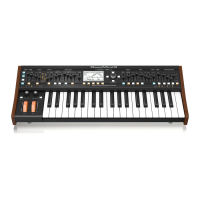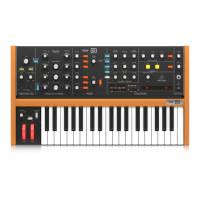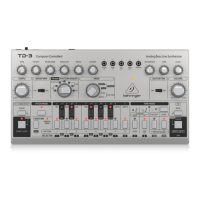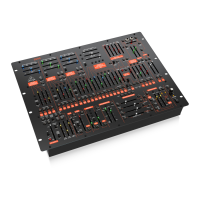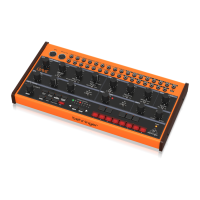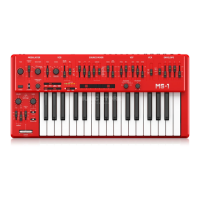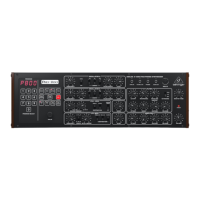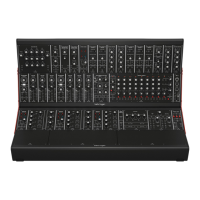45 DeepMind 12 User Manual
9. The trigger key is now ready for use. In the above example, with the POLY
CHORD switch still on, each time you press the G3 key, the poly chord made
up of C3, E3, and G3 will play.
10. When the poly chord is created, other soft keys options appear:
• REC - you can repeat this process and record other triggers within the 4
banks.
• DEL - you can delete the current trigger if you are still on it
(highlighted), or you can navigate to any of the triggers you want to
delete.
• VIEW - the screen will show details of the current trigger, as shown
below. This is only a view, and nothing can be edited here. ("CAT, TYPE,
and MOD" values only appear when using the WIZARD.)
Press CLOSE to return to the previous screen:
11. If you then press EXIT, it will return to the usual PROG display, except that
the POLY CHORD switch will still be illuminated, and so pressing the trigger
(such as G3 above) will still play the chord. Press POLY CHORD to turn o the
poly chord feature (then key G3 and any other triggers return to their normal
one-note use).
PLAYING
1. Press the POLY CHORD switch once to enter poly chord mode, and the switch
will illuminate. The display will help you see where the triggers are. Use the
BNK UP soft switch to move up the banks. You can play other notes at the
same time as playing a trigger, but only one trigger at a time.
2. Press the POLY CHORD switch again to exit the poly chord mode. The trigger
keys will return to normal operation.
ILLUMINATEDILLUMINATED
POLY CHORD CREATION USING THE WIZARD
The poly chord "WIZARD" allows you to create a poly chord from predened
templates, with four main categories and various types. A variety of modiers
are also available to tailor the generated chord to your requirements. Chords
and modiers can be previewed in real-time by changing the chord creation
parameters and/or the root note as you listen.
The Wizard has the following templates. Further details and examples are shown
in the tables in the Appendices of this manual.
CAT TYPE
MAJOR Ma, Ma7, Ma9, Add9, SuS4, 6, 6//9
MINOR Mi, Mi7,Mi9, Mi6, Mi6/9, Mi11,Mi7b5, MiMaj7
DOM
7, 9, 7SuS4, 9SuS4, 11, 7#5, 9#5, 7b5, 7#9,
7b5b9, 13, #9#5
DIM DIM, Au9, Dim7
• CAT – Category, select from four chord groups. Selecting a new category will
cause TYPE to automatically jump to the rst item in the new category.
• TYPE – Each Category (CAT) has a selection of chord types available. As
you cycle through the various types, upon reaching the last chord type, the
current CAT will step to the next available CAT. For example, upon reaching
the end of the MAJ CAT (6//9) pressing +/YES will move into the rst item in
MIN CAT (Mi).
• MOD – BASS, SPREAD, and SPREAD2 modiers can applied to the selected
chord, as shown below, or select OFF for no modier.
• BASS MODIFIER – Add the number of selected BASS notes to the chord
in the selected OCTAVE (default -1). For example if you have a chord
with a root note of F3, 1 note and OCTAVE set to -1, the wizard will add
F2, as shown below:
• SPREAD MODIFIER – Add any selected note type to the selected
OCTAVE (default -1) regardless of the notes in the parent CHORD. Shown
below: C2 being added by the modier:
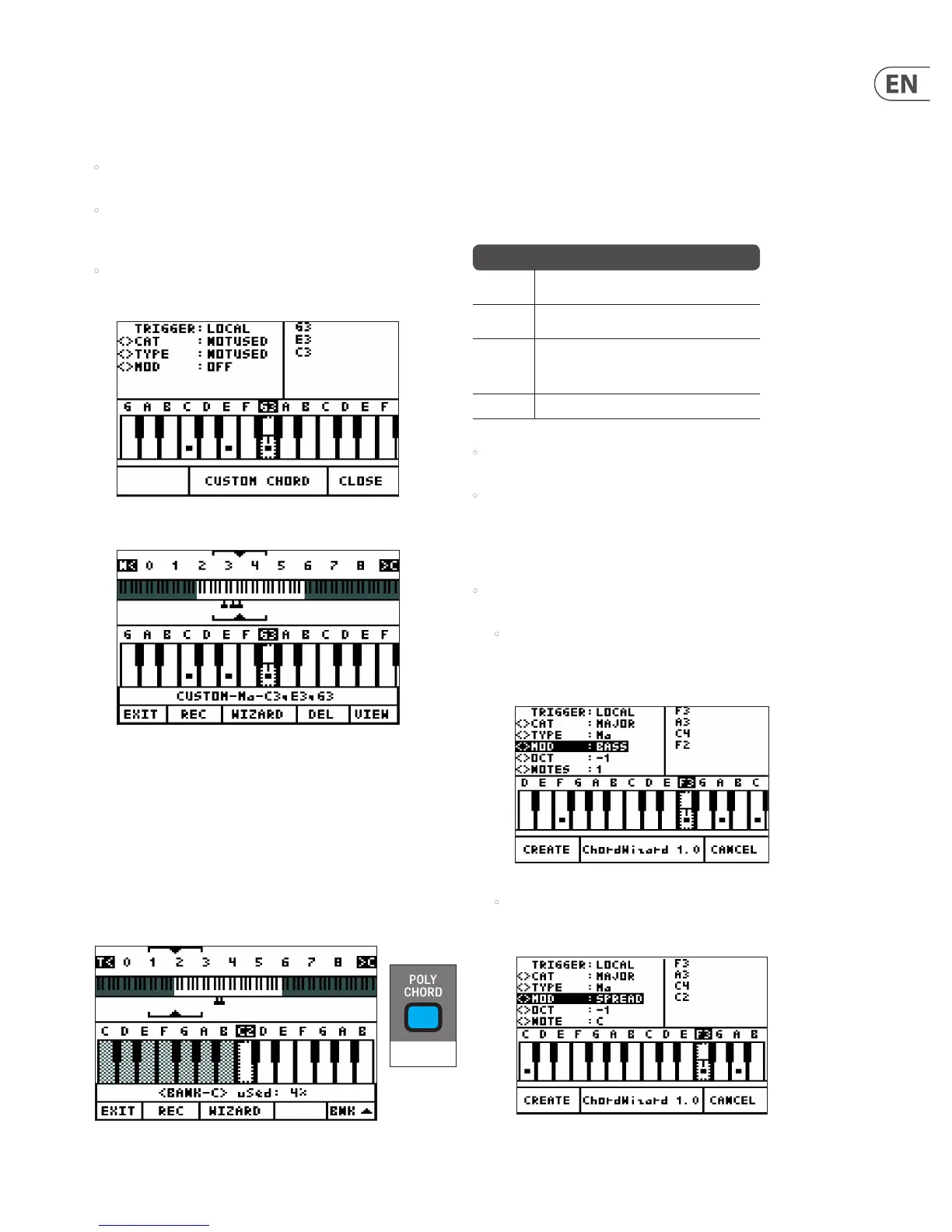